Chapter Town Hall 2025: Northeast Chapter: Wound Care
*YOU FIRST MUST LOG IN OR REGISTER YOUR CONTACT INFORMATION*
Virtual: PT: 9am; MT: 10am: CT:11am; ET: 12pm
FEES:
MEMBER: Physician/PhD or Equivalent - $70
MEMBER: Non-Physician/Resident/Fellow/Student - $50
NON-MEMBER: Physician/PhD or Equivalent - $90
NON-MEMBER: Non-Physician/Resident/Fellow/Student - $70
Sponsorships are welcome. Contact uhms@uhms.org
UHMS Cancellation/Refund Policy: $100 administrative fee will be held on all MEETING(S)/COURSE(S) cancellations from the time you register, until 60 days prior to the meeting/course date. From 59 days to one (1) month prior, 50% of fees will be held on all cancellations. NO REFUNDS will be issued one (1) month before or after the meeting/course date.
Event Properties
| Event Start Date | 10-11-2025 |
| Event End Date | 10-11-2025 |
| Location | Virtual platform |
| Categories | UHMS Directly Provided Meeting |

Garrett Ruff
BS
Read Bio
Garrett Ruff, a 4th year medical student at NYU Grossman School of Medicine
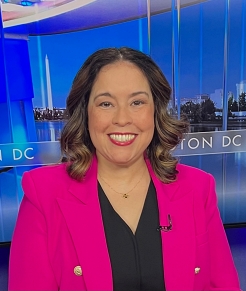
Kelly Johnson-Arbor
MD, FACEP, FUHM, FACMT
Read Bio
Dr. Kelly Johnson-Arbor is a physician who is triple board-certified in Emergency Medicine, Medical Toxicology, and Undersea and Hyperbaric Medicine. She completed her undergraduate education at Harvard College and earned her medical degree from Loyola University Stritch School of Medicine. She completed a residency in Emergency Medicine at the University of Rochester, followed by a fellowship in Medical Toxicology at the University of Connecticut. From 2018 through 2023, she served as the co-medical director of National Capital Poison Center. Since 2015, she has served as medical director of hyperbaric medicine at MedStar Georgetown University Hospital. She is an Assistant Professor of Plastic Surgery and Emergency Medicine at the Georgetown University School of Medicine and serves as an associate faculty member of the MedStar Institute for Quality and Safety.
An avid researcher and writer, Dr. Johnson-Arbor has published numerous articles in peer-reviewed medical journals including New England Journal of Medicine, JAMA Internal Medicine, and Annals of Emergency Medicine. She enjoys teaching toxicology principles and hyperbaric medicine to the public as well as medical professionals.
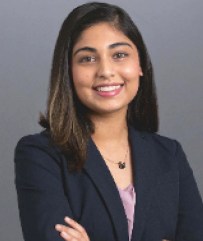
Leena Hani
MD, MPH
Read Bio
My name is Leena Hani,I was born and raised in Karachi, Pakistan. I completed my medical school in Pakistan in 2017 and moved to the US to start my MPH at NYU. Currently, I am a 4th year General Surgery resident at NYU Langone Brooklyn, and an aspiring Colorectal Surgeon. I am enthusiastic about Global Surgery and working towards surgical literacy in marginalized populations.
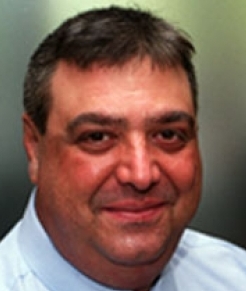
Louis N. Iannuzzi
MD
Read Bio
I am a Doctor of Physical Therapy and Board Certified Pedorthist specializing in limb salvage and management of the neuropathic limbs in Hansen’s Disease and Diabetes. I am a retired 25 year career US Public Health Service Officer assigned to the National Hansen’s Disease Program, Former Chief Physical Therapist at the NY Regional Hansen’s Disease Center at Bellevue Hospital Center, Department of Dermatology. I am currently a Clinical Assistant Professor at the NYU Steinhardt Doctoral Program in Physical Therapy, and a clinical wound care specialist at the Langone NYU Kimmel Wound and Hyperbaric Oxygen Center
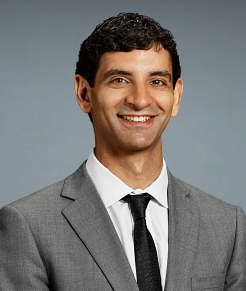
Mikel Sadek
MD
Read Bio
I was always fascinated with the human body, having grown up in a household of physicians. It was more than intellectual fascination—I knew that as a doctor I’d be able to lead a life of service. Moreover, I felt that if I could save one life in the course of my career, I would feel fulfilled.
During medical school, I realized that surgeons are frequently the last line of defense between life and death. My lifelong profession was decided. I began my surgical training here, at NYU Langone, in 2004.
My interests drove me to specialize in vascular surgery, treating people with peripheral arterial disease, a condition affecting blood vessels. Part of the appeal was NYU Langone’s increasing use of minimally invasive endovascular techniques to repair blood vessels.
I saw that the use of these minimally invasive treatments enabled people who had aortic aneurysms—bulging, weakened areas in the aorta—to go home the next day. Patients who had more invasive, traditional surgeries typically would have to stay in the hospital for a week and often experienced complications.
The use of minimally invasive techniques inspired me to research aortic aneurysms, participate in national meetings, and develop a more thorough understanding of vascular surgery. Since then, I’ve developed a particular interest in chronic venous insufficiency—weakened vein walls and valves—and in studying treatments that improve patients’ quality of life and advance the field of vascular surgery.
As a clinician, I want to create an environment in which I can have an open and clear dialogue with my patients. Treatment is often more successful when patients can participate in their own care and are educated by their physicians. Overall, I strive to provide the most effective and advanced combination of medical, endovascular, and open surgical techniques, as directed by the patient’s medical condition and needs.
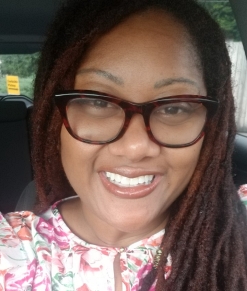
Nituna Phillips
EMT
Read Bio
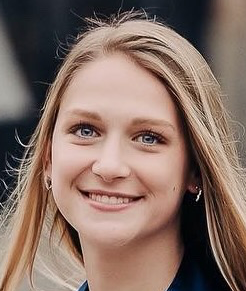
Paige Curcio
Read Bio
My name is Paige Curcio, and I am a third-year medical student at the NYU Grossman School of Medicine. I am originally from Schwenksville, Pennsylvania and previously attended Georgetown University where I received my BS in Neurobiology. Since starting medical school, I have assisted with multiple research projects in the field of general surgery. More recently, I have begun working with Dr. Frank Ross, who is a clinical professor in the Department of Surgeryand the associate director of the Kimmel Hyperbaric and Advanced Wound Healing Center. After doing a rotation in wound care with Dr. Ross, I continued to work with him ona few projects, including a talk on Hydroxyurea Ulcers for the UHMS Northeast Chapter Town Hall on Wound Care.

Sandra Wainwright
MD
Read Bio
Sandra Wainwright, MD Medical Director of the Hyperbaric and Wound Healing Center Greenwich Hospital, Yale New Haven Health. Boarded in Internal Medicine, Pulmonary and Critical Care Medicine. Born in Georgia grew up all over the US and Japan as part of a military family. Graduated from Pacific Lutheran University in Tacoma, WA with a Chemistry degree. Pursued MD at St. Georges University School of Medicine in Grenada, West Indies.
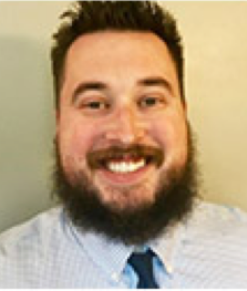
Zack Gaskill
DO
Read Bio
Dr. Zachary Gaskill is a Family Medicine Specialist in Philadelphia, Pennsylvania. He graduated with honors from Lake Erie College Of Osteopathic Medicine, Erie in 2015. Having more than 6 years of diverse experiences, especially in FAMILY MEDICINE, Dr. Zachary James Gaskill affiliates with many hospitals including Hospital Of Univ Of Pennsylvania, Chester County Hospital, Penn Presbyterian Medical Center, cooperates with many other doctors and specialists in medical group University Of Penn Medical Group.
| 12:00-12:05 pm |
Introduction/CE Requirements: Zac Gaskill, DO |
| 1205-1235 |
Total Contact Casting in the Management of the Insensitive Limb: Lou Iannuzzi, MDRead Description
This lecture will outline the history and development of the Total Contact Cast and it’s designation as the Gold Standard for Diabetic Foot Ulceration. It will examine the biomechanics of the cast design and evidence-based studies supporting the unparalleled effectiveness in healing the most destructive lower extremity ulcerations, preventing, amputation, and associated morbidity
|
| 12:35-1:05 |
Flap failure/healing or any other wound topic: TBDRead Description |
| 1:05-1:35 |
Vein surgery or any other vascular/wound topic: Mikel SadekRead Description |
| 1:35-2:05 |
IBD and wound care: Zac Gaskill, DORead Description |
| 2:05-2:10 |
Break |
| 2:10-2:40 |
A gut reaction: navigating the diagnosis in pelvic radiation sequelae: Nituna PhillipsRead Description |
| 2:40-3:10 pm |
Creepy crawly critters: maggots, leeches, and wound care: Kelly Johnson-Arbor, MDRead Description
his lecture will discuss the physiology, dosing and administration, indications, and complications of medicinal maggot and leech therapy. Practice gap: Since many wound care physicians and clinicians do not use medicinal maggots or leeches on a regular basis and thus do not know details about their physiology, use, and complications, this talk serves to provide a basic and introductory background on these FDA-regulated medical therapies for medical professionals.
|
| 3:10-3:40 pm |
Missed diagnosis: Non-healing ulcer which turned out to be Angiosarcoma: Leena HaniRead Description
This is a case description of a 74-year-old female who presented for a chronic non-healing ulcer in the left lower extremity that was being managed by dermatology with local wound care and antibiotics. Given no improvement in her symptoms after 8-9 months, she was then referred to wound care clinic where a biopsy was performed which revealed cutaneous angiosarcoma extending with extension to the base. She was then referred to Surgical oncology for further work-up and treatment.
|
| 3:40-3:55 |
Ulcerated partial foot amputations with total contact casting: Garrett RuffRead Description |
| 3:55-4:10 pm |
Hydroxyurea ulcers: Paige CurcioRead Description
In this lecture, I will describe the pathophysiology behind hydroxyurea-associated ulcers. In addition, I will discuss how to recognize the clinical presentation and share a case study that demonstrates this pathology. Finally, I will explore treat
|